Select Works of John Burnet (10 vols.)
Digital Logos Edition
This product has been transferred from Community Pricing to Pre-Pub. The actual funding level may be lower than it appears, which could delay production. The amount of funding still needed will be evaluated and updated soon.
Overview
Known for his authoritative philological work on Plato, John Burnet was a highly reputable Greek scholar. A fellow of Oxford and the British Academy, he turned down the position of chair of Greek at Harvard for other pursuits. His occupation with philosophy, particularly with Plato, likely began while he worked as an assistant to Lewis Campbell at St. Andrews, and evolved into passionate defense of new interpretations of Plato and Socrates. Burnet held the view that Plato’s dialogues all portrayed historically accurate representations of Socrates, and that Plato’s own philosophies did not appear until his later dialogues.
The Select Works of John Burnet (10 vols.) includes Burnet’s groundbreaking works on Plato, which are still widely studied today, as well as his other works on Greek philosophy (including Socrates and Aristotle) and a text addressing the education system during World War I. The collection contains John Burnet’s most substantial works, and two notable essays.
With Logos Bible Software, these valuable volumes are enhanced by cutting-edge research tools. Important terms link to dictionaries, encyclopedias, and a wealth of other resources in your digital library. Powerful searches help you find exactly what you’re looking for. Tablet and mobile apps let you take the discussion with you. With Logos Bible Software, the most efficient and comprehensive research tools are in one place, so you get the most out of your study.
- Two authoritative works on Plato
- Scholarly explorations of Greek philosophy
- A text addressing the education system during World War I
- Title: Select Works of John Burnet
- Author: John Burnet
- Volumes: 10
- Pages: 2,415
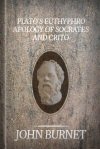
Plato’s Euthyphro, Apology of Socrates, and Crito
- Editor: John Burnet
- Publisher: Clarendon Press
- Publication Date: 1918
- Pages: 219
This volume includes John Burnet’s editions of Euthyphro, Apology of Socrates, and Crito. Euthyphro is a dialogue between Euthyphro, and Socrates regarding piety. Apology of Socrates is Socrates’ court defense against charges of corrupting the youth and refusing to believe in the gods of his city. The work is believed to be the most reliable source available on Socrates. Crito is a dialogue between Socrates and his wealthy friend Crito, who wished to pay for Socrates’ escape from prison. The dialogue engages issues of justice and injustice, and what Socrates’ believes to be the proper response to injustice.
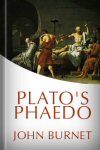
This volume contains John Burnet’s edition of Phaedo, Plato’s final dialogue portraying the last days of Socrates.
The best edition of the “Phaedo,” unpretending as it is
—The School World
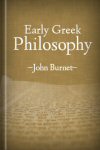
Early Greek Philosophy
- Editor: John Burnet
- Publisher: Adam and Charles Black
- Publication Date: 1930
- Pages: 383
This volume contains John Burnet’s work on early Greek philosophy, as well as a complete translation of the existing fragments of writings by the early philosophers.
Mr. Burnet’s volume marks a new departure. For refined scholarship, patient criticism of the sources, objectivity of thought, and familiarity with the newest literature of the subject, it may rank with the best German treatises; while it is favorably distinguished from them by simplicity of style and utter absence of pedantry
—The Academy
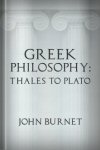
This volume contains Burnet’s work on significant Greek philosophers.
Contents
- The Ionians
- Pythagoras
- Herakleitos and Parmenides
- The Pluralists
- Eleatics and Pythagoreans
- Leukippos
- The Sophists
- The Life of Sokrates
- The Philosophy of Sokrates
- The Trial and Death of Sokrates
- Demokritos
- Plato and the Academy
- Criticism
- Logic
- Politics
- The Philosophy of Numbers
- The Philosophy of Movement
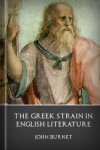
The Greek Strain in English Literature
- Author: John Burnet
- Publisher: Adam and Charles Black
- Publication Date: 1917
- Pages: 6
This volume is a lecture Burnet delivered in an address to the Classical Association of Scotland. The essay analyzes a popular scene from Shakespeare’s Merchant of Venice and its relationship to Greek philosophy.
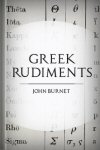
This volume is intended to help readers understand the diction and idiom of Attic Greek, and to prepare them for the study of Aristophanes, Demosthenes, and Plato.
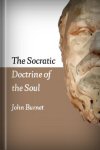
The Socratic Doctrine of the Soul
- Author: John Burnet
- Publisher: Adam and Charles Black
- Publication Date: 1916
- Pages: 27
This volume is a lecture John Burnet delivered at the Second Annual Philosophical Lecture for the Henriette Hertz Trust. Burnet takes a historical rather than philosophical approach to examining Socrates’ doctrine of the soul.
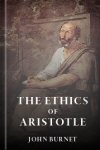
This volume is John Burnet’s commentary on Aristotle’s Ethics.
. . . well fitted to become the standard textbook for “Greats” men.
—The Academy
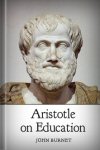
Aristotle on Education: Being Extracts from the Ethics and Politics
- Author: John Burnet
- Publisher: Adam and Charles Black
- Publication Date: 1903
- Pages: 156
This volume contains John Burnet’s commentary on extracts from Ethics and Politics.

This volume is largely based on lectures which were published in 1913, before World War I. The text analyzes and compares various higher education systems throughout the world.
Contents
- Kultur
- Humanism
- Higher Education in Germany
- The Seamy Side
- Home and School
- School and University
- Scotland and Prussia
- Conclusions
The work of a master in small compass. Written with a delightful limpidity, in a spirit at once shrewd and idealistic, it is full of real knowledge and wise comment as to the working of higher education, not only in England and Scotland, but in Germany, in France, and in the United States.
—Book Review Digest
This is a most thorough, sane, and scientific piece of work. . . . This is the best work on education we have seen for a long time.
—International Journal of Ethics
His arguments for the humanities, while neither narrow nor exaggerated, are extremely cogent.
—The Nation
John Burnet (1863–1928) was a Scottish classicist, known best for his landmark works on Plato. John Burnet Hall at the University of St. Andrews was named after him. He was educated at the University of Edinburgh and Balliol College at Oxford. He worked as an assistant to Lewis Campbell at the University of St. Andrews before becoming a professor of Latin at the University of Edinburgh and then professor of Greek at the University of St. Andrews. He was offered the chair of Greek at Harvard, but he turned down the offer to focus on his research. Burnet’s works on Plato have been authoritative texts for 100 years, and are still widely read today.